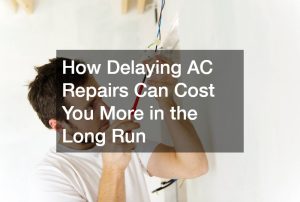Understanding your home’s heating system can be a daunting task, but having the right HVAC advice can save both time and money. Every homeowner should be aware of the key signs that indicate their heating system may need attention, how to perform basic checks, and when to call a professional. Proper insight into maintenance schedules, repair options, and efficiency upgrades ensures your home remains comfortable year-round. Knowing how to choose the right HVAC contractor or air conditioning contractor can also prevent unnecessary service costs and improve system longevity.
Heating repairs are not just about comfort—they also affect safety and energy efficiency. Ignoring minor issues can escalate into major problems, costing homeowners significantly more in the long run. From commercial HVAC companies handling large-scale installations to local HVAC companies servicing residential systems, there’s a broad spectrum of services available. This article will provide practical HVAC advice, covering common heating problems, DIY checks, and how to evaluate technicians and services. By following these tips, homeowners can make informed decisions regarding AC installation, ac maintenance service, water heater leaking services, and local HVAC repairs, ensuring their systems operate safely and efficiently.
What Are the Common Signs That My Heater Needs Repair?

Unusual Noises
One of the first indicators that a heating system may require professional attention is unusual noises. Clicking, banging, or rattling sounds often suggest issues with components like the blower motor or internal ductwork. A well-functioning system should operate quietly; persistent or escalating sounds indicate underlying problems. Paying attention to these noises early can reduce the risk of further damage and expensive commercial heating repair services. HVAC advice for homeowners often emphasizes that immediate consultation with an HVAC contractor or air conditioning contractor can prevent minor issues from turning into major repairs.
Additionally, these noises can sometimes signal more than mechanical issues—they may indicate airflow restrictions or buildup of debris within the system. Ignoring these sounds could lead to decreased efficiency and increased wear on your equipment. Following HVAC advice, having a professional inspection early can prevent costly replacements and ensure your heating system continues to operate safely and effectively.
Inconsistent Heating
Another sign of trouble is uneven heating throughout the home. Some rooms may feel significantly warmer or cooler than others, signaling potential airflow problems or failing components. Inconsistent heating can stem from clogged filters, malfunctioning thermostats, or ductwork leaks. Addressing these issues promptly, possibly through AC maintenance service or local HVAC repairs, ensures consistent comfort and prevents unnecessary energy use. Expert HVAC advice stresses monitoring temperature distribution regularly, especially before peak heating seasons.
Uneven heating can also be a warning of more complex issues, such as failing blower motors or improperly sized systems for your space. By catching these problems early with guidance from HVAC advice, homeowners can avoid emergency commercial heating repair calls and reduce energy costs. Local HVAC companies often provide diagnostic checks to pinpoint the exact cause and recommend the most effective solution.
How Often Should I Have My Heating System Maintained?
Annual Maintenance Checks
Scheduling annual maintenance checks is one of the most important pieces of HVAC advice for homeowners. These inspections typically include cleaning and servicing key components, checking for leaks, testing system efficiency, and evaluating the thermostat and control systems. Regular maintenance prolongs the life of the heating system and reduces the likelihood of emergency commercial heating repair needs. Trusted local HVAC companies and air conditioning contractors often offer maintenance packages, which are cost-effective in the long run compared to reactive repairs.
In addition, annual maintenance allows technicians to identify minor problems before they escalate into major failures. From AC installation concerns to water heater leaking services, a proactive approach based on HVAC advice ensures optimal system performance and reliability. Homeowners benefit from peace of mind knowing their system is operating safely and efficiently throughout the year.
Signs That Maintenance Is Overdue
Even with annual checkups, certain indicators suggest your heating system may require more frequent attention. If you notice reduced airflow, strange odors, or rising energy bills, it may be time for an additional inspection. Water heater leaking services or AC maintenance service checks can catch issues early, preventing major failures. Proper HVAC advice recommends monitoring your system’s performance and scheduling repairs or servicing before small problems escalate, ensuring both comfort and safety.
Other subtle signs of overdue maintenance can include longer heating cycles, fluctuating temperatures, or increased noise during operation. Paying attention to these cues and consulting a local HVAC company promptly can prevent costly commercial heating repair scenarios and extend the life of your system, following the principles of sound HVAC advice.
What DIY Checks Can I Perform Before Calling a Technician?

Filter Cleaning or Replacement
Regularly checking and replacing air filters is an essential DIY step recommended in most HVAC advice guides. Dirty or clogged filters restrict airflow, force your system to work harder, and reduce overall efficiency. Replacing filters every 1-3 months, depending on usage and system type, can prevent unnecessary strain on your heating system. Homeowners who perform this simple check often find that issues initially thought to require an HVAC contractor can be resolved independently, saving time and money.
Beyond just efficiency, clean filters also improve indoor air quality and reduce wear on critical components like blower motors. Following HVAC advice, keeping a log of filter changes and inspecting them regularly ensures consistent airflow, potentially reducing the need for emergency local HVAC repairs or AC maintenance service interventions.
Thermostat Settings
Ensuring your thermostat is correctly set and functioning properly is another straightforward check. Incorrect settings can mimic a system malfunction, prompting unnecessary service calls. Test both heating and cooling functions and verify temperature readings with a separate thermometer if needed. In some cases, upgrading to a smart thermostat can provide better control and energy savings. Incorporating this advice into routine maintenance practices supports more efficient AC installation, ac maintenance service, and local HVAC repairs, reducing long-term operational costs.
Additionally, reviewing thermostat settings can reveal patterns of excessive energy use, helping homeowners adjust schedules to match daily routines. HVAC advice highlights that even minor adjustments to temperature settings can prevent system strain, lower energy bills, and extend the life of the heating system, minimizing reliance on local HVAC companies or emergency service calls.
What Should I Look for in an HVAC Technician?
Experience and Certifications
When hiring an HVAC contractor or air conditioning contractor, experience and proper certification are crucial. Certified professionals bring both knowledge and accountability, ensuring repairs and installations meet industry standards. HVAC advice consistently highlights checking for licenses, certifications, and years of service to gauge competency. Experienced technicians can also identify potential problems that might be overlooked by less qualified personnel, particularly in commercial heating repair scenarios or large-scale commercial HVAC company projects.
Some homeowners and business owners also benefit from understanding how HVAC leads generation works. Companies that actively engage in generating leads often have better visibility, proven marketing systems, and a track record of customer service, making them easier to evaluate and trust. This aspect of HVAC advice can help you select a technician or company with a solid reputation and consistent workflow, which often correlates with reliability and professionalism.
Customer Reviews and Recommendations
Customer feedback provides valuable insight into a technician’s reliability and service quality. Homeowners should consider reviews, ask for references, and seek recommendations from friends or neighbors. Good HVAC advice emphasizes choosing contractors who demonstrate professionalism, punctuality, and transparency. Whether seeking local HVAC companies or larger commercial HVAC companies, considering the experiences of past clients helps ensure your heating system receives proper care and avoids recurring issues.
What Are the Most Common Heating Problems and Solutions?

Thermostat Issues
Thermostat problems are one of the most frequent causes of heating inefficiency. A thermostat that fails to read temperature accurately can lead to inconsistent heating or unnecessary system operation. Simple solutions include recalibrating the thermostat, replacing batteries, or upgrading to a programmable or smart model. Following HVAC advice, homeowners can often resolve minor thermostat issues themselves, but persistent problems may require professional attention from an HVAC contractor or air conditioning contractor. Proper thermostat function also supports efficient AC installation and ac maintenance service, ensuring overall system performance.
Blower Motor Failures
Blower motors are critical for distributing warm air throughout your home. Symptoms of failure include weak airflow, strange noises, or system shutdowns. Solutions may range from lubrication and belt replacement to complete motor replacement. Engaging a qualified HVAC contractor or local HVAC companies to handle blower motor repairs ensures the work is done safely and effectively. HVAC advice emphasizes addressing blower motor issues promptly, as neglecting them can increase energy costs and strain other system components, eventually requiring commercial heating repair services in larger systems.
When Is It More Cost-Effective to Replace Rather Than Repair?
Age of the Heating System
The age of your heating system is a major factor in deciding whether to repair or replace. Systems older than 15–20 years often experience frequent breakdowns and decreased efficiency. HVAC advice suggests that continual repairs on aging systems may cost more over time than a new installation. For homeowners considering AC installation or upgrading to energy-efficient models, evaluating the system’s age alongside performance and repair history is essential. Local HVAC companies can provide assessments and recommendations to help make an informed decision.
Repair Costs vs. Replacement Costs
Analyzing repair versus replacement costs involves more than just immediate expenses. While minor repairs can be affordable, repeated visits for local HVAC repairs, water heater leaking services, or ac maintenance service can add up. Replacement, though initially more expensive, often reduces long-term costs, enhances energy efficiency, and improves comfort. Following expert HVAC advice can guide homeowners through a cost-benefit analysis, balancing short-term repair needs with long-term investments in system performance.
How Can I Improve the Efficiency of My Heating System?

Insulation and Sealing Gaps
One of the simplest ways to improve heating efficiency is by addressing insulation and sealing gaps around doors, windows, and ducts. Proper insulation reduces energy loss, enabling your system to heat your home more effectively. HVAC advice often recommends combining ductwork inspections with regular maintenance from local HVAC companies or an HVAC contractor to optimize airflow. Effective insulation complements AC installation and ac maintenance service by reducing strain on the system and lowering energy costs.
Smart Thermostats
Upgrading to a smart thermostat provides homeowners with precise control over heating schedules, allowing the system to operate efficiently when needed and conserve energy when not. Smart thermostats can also provide diagnostic information to alert you to system issues before they become serious. Implementing this advice aligns with recommendations from commercial HVAC companies and local HVAC companies, enhancing the effectiveness of ac maintenance service and minimizing the need for emergency local HVAC repairs or water heater leaking services.
What Are the Risks of Ignoring Heating Repairs?
Increased Energy Bills
Neglecting heating repairs often leads to higher energy bills due to inefficient system operation. Malfunctioning components, such as a faulty blower motor or leaking ductwork, force your system to work harder, consuming more electricity or fuel. HVAC advice emphasizes addressing problems early to avoid excessive energy consumption and associated costs. Engaging professional services, including local HVAC repairs, ac maintenance service, or consultation from an HVAC contractor, helps maintain efficiency and prevents bills from skyrocketing.
Potential Safety Hazards
Ignoring heating issues can also present serious safety hazards. Carbon monoxide leaks, electrical malfunctions, and water heater leaking services are just a few of the risks homeowners face when systems are not maintained. Following HVAC advice, it’s critical to address concerns promptly and rely on certified technicians, whether from local HVAC companies or commercial HVAC companies. Ensuring your system is safe protects your family and prevents costly emergency commercial heating repair situations.
Proper HVAC advice empowers homeowners to make informed decisions regarding their heating systems. Understanding common signs of malfunction, performing simple DIY checks, and knowing when to engage a qualified HVAC contractor or local HVAC companies can prevent minor issues from escalating into major repairs. Maintenance practices, including ac maintenance service, monitoring water heater leaking services, and scheduling local HVAC repairs, enhance efficiency, comfort, and safety.
Homeowners also benefit from evaluating repair versus replacement decisions, investing in insulation improvements, and considering smart thermostat upgrades to optimize energy use. Whether working with commercial HVAC companies for large-scale systems or a trusted air conditioning contractor for residential needs, following consistent HVAC advice ensures reliable performance and reduces long-term costs. By staying proactive and informed, you can enjoy a comfortable, efficient, and safe home environment while maximizing the life and effectiveness of your heating system.



